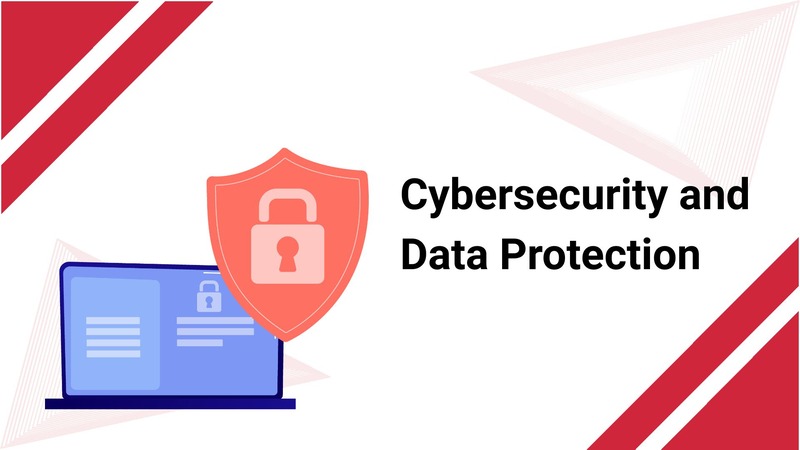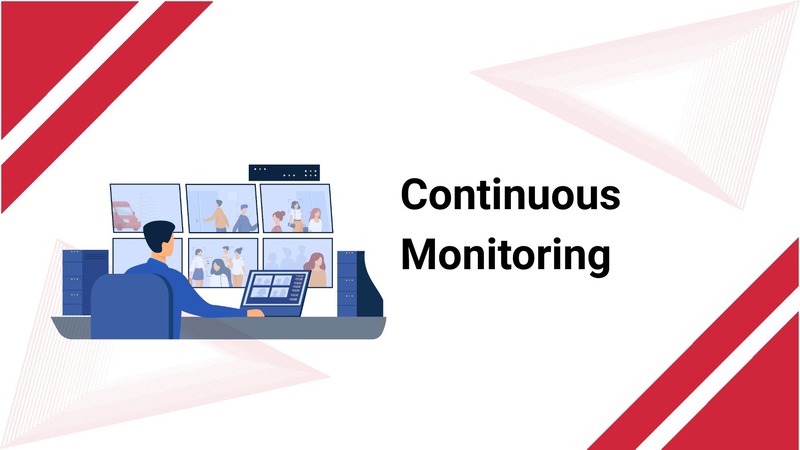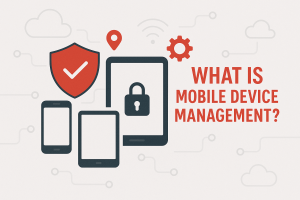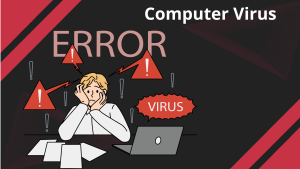Technology ensures smooth operations, exceptional guest experiences, and efficient management. IT infrastructure has become the backbone of modern hotels, resorts, and restaurants, from booking systems to point-of-sale platforms. However, maintaining this complex technology can be challenging. That’s where managed IT support comes in.
This article dives into the key benefits of managed IT support for hospitality industry, explaining how it can help businesses optimize their operations, enhance guest satisfaction, and stay ahead of the competition.
Ready to elevate your hospitality operations with seamless IT management? Let’s explore how managed IT support can transform your business today.
10 Clear Signs Your Business Needs Managed IT Services
Download Our Free Guide To Discover:
- The most common IT issues that signal it's time for change.
- Proactive steps to resolve these challenges before they escalate.
- How managed IT services can optimize productivity, security, and cost savings.
1. Enhanced Guest Experiences
In the hospitality industry, guest satisfaction is everything. Managed IT support ensures smooth service delivery, directly impacting how guests experience your brand. By optimizing and maintaining the latest technologies, IT support helps hospitality businesses create seamless and memorable customer interactions.
For instance, streamlined check-ins and check-outs are now possible with the help of mobile apps and self-service kiosks. Guests no longer need to wait in long queues; they can check in using their smartphones or through automated terminals, saving time and enhancing convenience.
Another significant advantage is personalized guest services. By integrating customer relationship management (CRM) systems and data analytics, hotels can better understand guest preferences. For example, returning visitors might find their favorite room temperature or pillow type pre-arranged, making them feel valued and cared for.
Booking platforms are another area where managed IT support shines. Reliable systems ensure hassle-free reservations through websites or apps, while automated responses and live chat features address guest inquiries promptly, contributing to a smooth booking experience.
By ensuring these technologies function without interruptions, managed IT support helps hospitality businesses provide a level of service that feels effortless to guests but leaves a lasting positive impression.
2. Improved Operational Efficiency
Behind every excellent guest experience is a well-oiled machine of operational processes. Managed IT support helps hospitality businesses optimize their day-to-day operations, ensuring everything runs smoothly and efficiently.
One key area is resource management. Managed IT services ensure that integrated systems like property management software (PMS) and enterprise resource planning (ERP) tools operate without hiccups. These systems allow hotels to track room availability, maintenance schedules, and energy consumption in real time, making it easier to allocate resources.
IT support also benefits inventory management. For example, automated systems can monitor stock levels of linens, toiletries, and kitchen supplies. When paired with data analytics, these tools predict demand trends, helping businesses avoid overstocking or running out of essential items.
Another critical aspect is staff scheduling. Managed IT support ensures the reliable operation of workforce management software, allowing managers to schedule shifts based on demand patterns. For example, analytics can highlight peak check-in times, helping allocate front desk staff more effectively and avoiding unnecessary labor costs during slow periods.
With the help of data analytics, managed IT support enables businesses to gather and analyze performance metrics. For instance, hotels can track average occupancy rates, booking trends, and customer preferences to make informed decisions that drive profitability and efficiency.
Managed IT support empowers hospitality businesses to operate at peak efficiency while minimizing downtime, manual errors, and wasted resources by maintaining and enhancing these interconnected systems.
3. Cybersecurity and Data Protection

In the hospitality industry, trust is a cornerstone of success. Guests entrust hotels and restaurants with their personal and financial information, from credit card details to passport numbers. A single data breach can damage that trust and lead to significant financial and reputational losses. That’s why cybersecurity is not just a priority—it’s a necessity.
Managed IT support ensures robust cybersecurity measures to protect guest information and business-critical data. This starts with deploying firewalls as the first defense against unauthorized access. These firewalls monitor incoming and outgoing traffic, ensuring any malicious activity is blocked before it can cause harm.
Another key element is encryption, which secures sensitive data during transmission. For instance, when guests make reservations or pay online, encryption ensures their information is unreadable to potential hackers.
Managed IT services also implement continuous monitoring systems. These tools constantly scan for vulnerabilities, unusual activity, or potential threats. For example, if an employee unknowingly clicks a phishing link, the system detects and isolates the issue before it spreads across the network.
Additionally, managed IT providers ensure compliance with data protection regulations such as GDPR or PCI DSS. This is especially important for global hospitality brands that handle vast amounts of guest data across multiple locations.
By offering proactive security measures, 24/7 monitoring, and swift incident response, managed IT support gives hospitality businesses the confidence to operate in a digital-first world, ensuring guest trust and safeguarding critical operations.
4. Cost Management and Budget Optimization
Managing costs while delivering exceptional service is a constant challenge in the hospitality industry. Managed IT support offers a practical solution by streamlining IT expenses and optimizing budgets, allowing businesses to focus on enhancing guest experiences.
One significant benefit of outsourcing IT support is the reduction in operational costs. Instead of investing heavily in hiring and training an in-house IT team, businesses can access a pool of skilled experts through a managed service provider. This eliminates the costs associated with salaries, benefits, and ongoing training, which can quickly add up.
Moreover, outsourcing minimizes the need for expensive on-site infrastructure. Managed IT providers often offer cloud-based solutions, reducing the reliance on physical servers and the associated costs of maintenance, upgrades, and energy consumption. For example, hotels can securely store booking data, guest preferences, and operational records in the cloud without the overhead of maintaining a local server room.
Managed IT support also provides predictable monthly costs. Businesses can opt for tailored service packages, paying only for their needed support. This helps avoid unexpected expenses from emergency IT repairs or equipment failures.
Outsourcing IT management allows hospitality businesses to reallocate their budget to other critical areas, such as staff training, marketing, or upgrading guest amenities. Additionally, reliable IT systems’ improved efficiency reduces downtime and boosts revenue-generating operations like bookings and check-ins.
In essence, managed IT support reduces costs and ensures smarter budget allocation, allowing hospitality businesses to achieve more with less.
5. Scalability and Flexibility
The hospitality industry is inherently dynamic, with seasonal peaks and valleys in demand. Managed IT services empower businesses to adapt to these fluctuations seamlessly, ensuring operations remain efficient and cost-effective year-round.
One significant advantage is the ability to scale IT resources up or down based on demand. For example, hotels may need additional bandwidth, server capacity, or support during peak travel seasons for increased online bookings. Managed IT providers can quickly adjust these resources to accommodate the surge, ensuring smooth operations without overloading systems. Resources can be scaled back once the busy period subsides, avoiding unnecessary expenses.
Cloud-based solutions play a pivotal role in this flexibility. Cloud services allow hospitality businesses to store and access data, manage reservations, and run essential applications without physical infrastructure limitations. For instance, a hotel can expand its booking platform to handle higher traffic during the holiday season without investing in costly server upgrades.
Managed IT support also offers flexible service plans tailored to hospitality businesses’ unique needs. Whether adding new software integrations for a growing property portfolio or scaling down support during the off-season, managed IT providers ensure businesses only pay for what they use.
This scalability extends to geographic expansion as well. Whether opening a new property or introducing a new service, managed IT support facilitates the quick deployment of IT systems, helping businesses grow without delays.
By leveraging scalable and flexible IT solutions, hospitality businesses can effortlessly adapt to industry demands, ensuring consistent performance, cost efficiency, and guest satisfaction no matter the season.
6. Continuous Monitoring and Proactive Maintenance

In the fast-paced hospitality industry, downtime is not an option. Managed IT support ensures your systems run smoothly around the clock, minimizing disruptions and maintaining exceptional service levels for your guests.
Continuous monitoring is a cornerstone of managed IT services. These services involve 24/7 oversight of your IT infrastructure, including networks, servers, and applications. Advanced monitoring tools detect potential issues—such as unusual network activity or hardware failures—before they escalate.
For example, if a server is nearing capacity, the system proactively alerts the IT team to address the issue, ensuring uninterrupted performance during peak operations.
Proactive maintenance complements monitoring by preventing problems before they occur. Managed IT providers regularly update software, replace outdated hardware, and optimize system performance.
This minimizes the risk of unexpected failures and ensures that all systems run at their best. For instance, regular updates to booking software or security patches for payment systems keep vulnerabilities at bay while enhancing functionality.
The result? Fewer service disruptions, faster issue resolution, and improved guest experiences. Imagine your check-in system going down during a busy weekend—continuous monitoring and proactive maintenance significantly reduce the likelihood of such scenarios, saving your business from costly delays and guest dissatisfaction.
By ensuring optimal system performance and preventing downtime, managed IT support helps hospitality businesses maintain operational excellence and provide a seamless experience for their guests, day or night.
Final Thoughts
Managed IT support is a game-changer for the hospitality industry. From enhancing guest experiences and improving operational efficiency to bolstering cybersecurity and offering scalability, these services ensure hospitality businesses stay competitive in an increasingly digital landscape. The benefits of managed IT support for hospitality industry are clear. Continuous monitoring and proactive maintenance further guarantee seamless operations, allowing companies to focus on what matters most—delivering exceptional guest experiences.
If you’re in the hospitality sector and want to elevate your operations while optimizing costs, managed IT support is the solution you’ve been looking for. With tailored solutions, expert support, and cutting-edge technologies, you can ensure your business remains agile and prepared to meet evolving guest expectations.
Ready to transform your hospitality operations? Visit Adivi to explore our managed IT solutions for the hospitality industry. Let’s partner to create seamless, secure, and efficient IT systems that will set your business apart.
FAQs
Why should hospitality businesses consider outsourcing their IT support?
Outsourcing IT support allows hospitality businesses to focus on their core competencies, such as delivering exceptional guest services, while leaving the complexities of IT management to experts.
Can managed IT services improve operational efficiency in hospitality businesses?
Yes, managed IT services streamline operations by integrating systems like property management and point-of-sale, automating routine tasks, and providing real-time data analytics for informed decision-making.
Are managed IT services scalable for seasonal demands in the hospitality industry?
Yes, managed IT services offer scalability, allowing businesses to adjust resources based on seasonal demand, ensuring optimal performance during peak times without unnecessary costs during off-peak periods.


